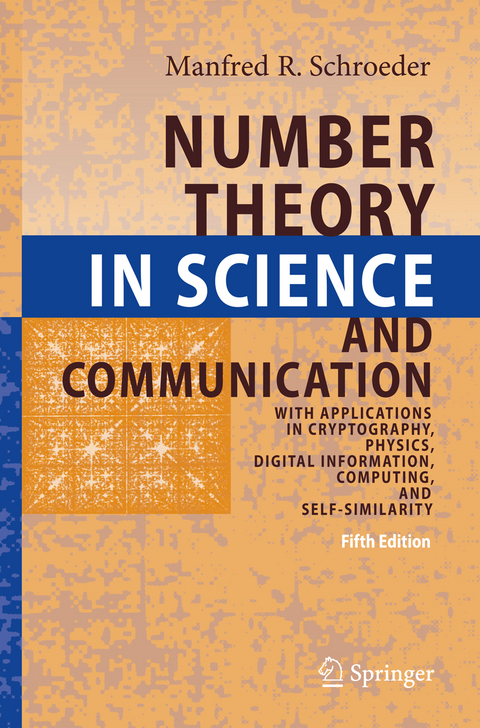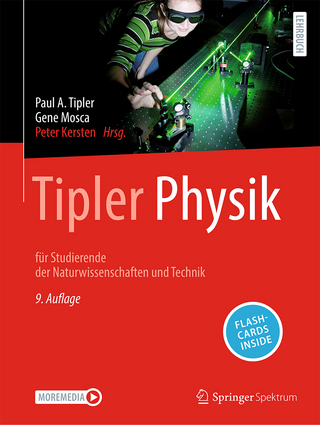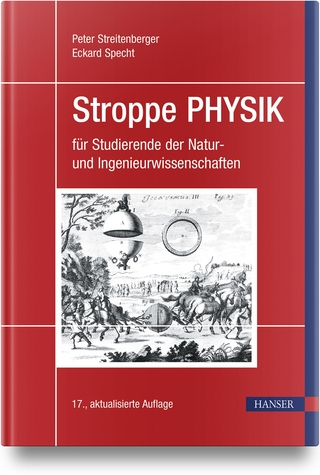
Number Theory in Science and Communication
Springer Berlin (Verlag)
978-3-642-09901-4 (ISBN)
"Number Theory in Science and Communication" is a well-known introduction for non-mathematicians to this fascinating and useful branch of applied mathematics . It stresses intuitive understanding rather than abstract theory and highlights important concepts such as continued fractions, the golden ratio, quadratic residues and Chinese remainders, trapdoor functions, pseudo primes and primitive elements. Their applications to problems in the real world are one of the main themes of the book. This revised fifth edition is augmented by recent advances in coding theory, permutations and derangements and a chapter in quantum cryptography.
From reviews of earlier editions -
"I continue to find [Schroeder's] Number Theory a goldmine of valuable information. It is a marvelous book, in touch with the most recent applications of number theory and written with great clarity and humor.' Philip Morrison (Scientific American)
"A light-hearted and readable volume with a wide range of applications to which the author has been a productive contributor - useful mathematics outside the formalities of theorem and proof." Martin Gardner
A Few Fundamentals.- The Natural Numbers.- Primes.- The Prime Distribution.- Some Simple Applications.- Fractions: Continued, Egyptian and Farey.- Congruences and the Like.- Linear Congruences.- Diophantine Equations.- The Theorems of Fermat Wilson and Euler.- Permutations Cycles and Derangements.- Cryptography and Divisors.- Euler Trap Doors and Public-Key Encryption.- The Divisor Functions.- The Prime Divisor Functions.- Certified Signatures.- Primitive Roots.- Knapsack Encryption.- Residues and Diffraction.- Quadratic Residues.- Chinese and Other Fast Algorithms.- The Chinese Remainder Theorem and Simultaneous Congruences.- Fast Transformation and Kronecker Products.- Quadratic Congruences.- Pseudoprimes, Möbius Transform, and Partitions.- Pseudoprimes Poker and Remote Coin Tossing.- The Möbius Function and the Möbius Transform.- Generating Functions and Partitions.- From Error Correcting Codes to Covering Sets.- Cyclotomy and Polynomials.- Cyclotomic Polynomials.- Linear Systems and Polynomials.- Polynomial Theory.- Galois Fields and More Applications.- Galois Fields.- Spectral Properties of Galois Sequences.- Random Number Generators.- Waveforms and Radiation Patterns.- Number Theory Randomness and "Art".- Self-Similarity, Fractals and Art.- Self-Similarity, Fractals, Deterministic Chaos and a New State of Matter.
From the reviews of the fifth edition:
"Number theory has been a very active field in the last twenty-seven years, and Schroeder's text has a palimpsest quality, with later mathematical advances layered on earlier ones. ... Number Theory in Science and Communication is rewarding to browse, or as a jumping-off point for further research ... . It would be a good source of student projects in an undergraduate discrete mathematics or number theory course." (Ursula Whitcher, The Mathematical Association of America, March, 2011)
| Erscheint lt. Verlag | 6.11.2010 |
|---|---|
| Zusatzinfo | XXIV, 431 p. |
| Verlagsort | Berlin |
| Sprache | englisch |
| Maße | 155 x 235 mm |
| Gewicht | 682 g |
| Themenwelt | Naturwissenschaften ► Physik / Astronomie ► Allgemeines / Lexika |
| Naturwissenschaften ► Physik / Astronomie ► Theoretische Physik | |
| Schlagworte | algorithms • Coding • coding theory • Communication • Congruance • cryptography • DES • Encryption • Euler • Fermat • Galois field • Information • Möbius • Number Theory • Polynominals • Prime • Primes • Pseudoprimes • Random Generator • Random Number • Zahlentheorie |
| ISBN-10 | 3-642-09901-7 / 3642099017 |
| ISBN-13 | 978-3-642-09901-4 / 9783642099014 |
| Zustand | Neuware |
| Informationen gemäß Produktsicherheitsverordnung (GPSR) | |
| Haben Sie eine Frage zum Produkt? |
aus dem Bereich


